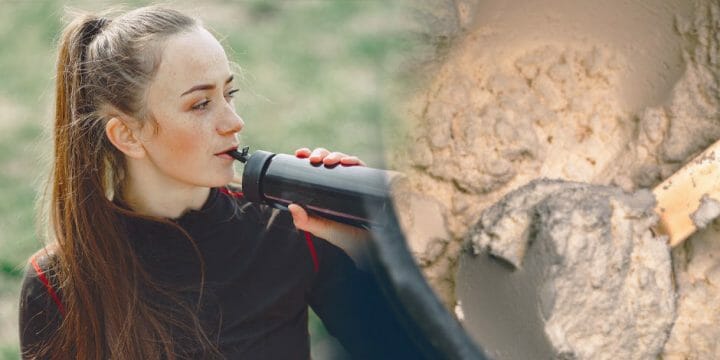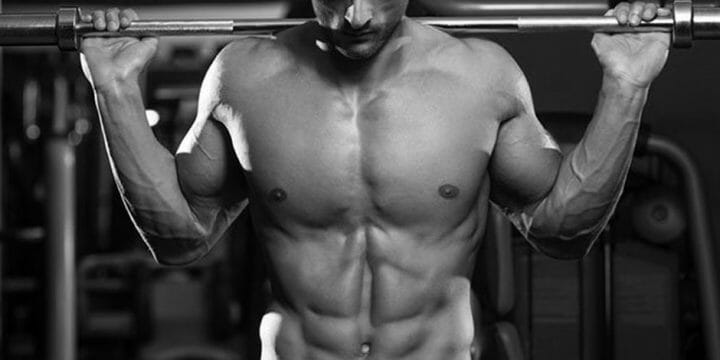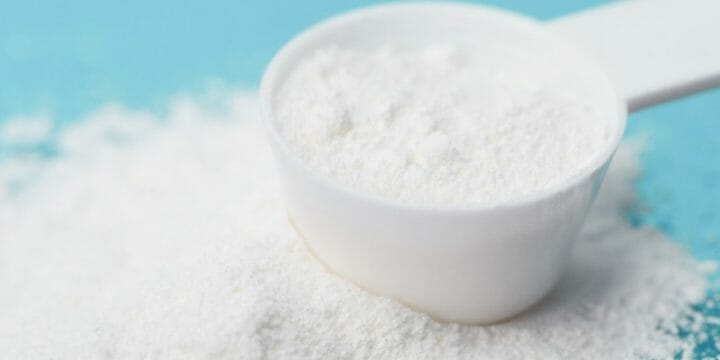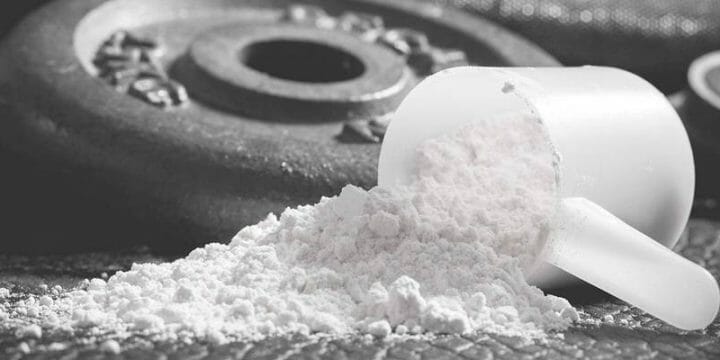Creatine is the number one supplement among athletes and bodybuilders.
However, with the rising number of health- and environment-conscious people, a very important question arises: is creatine supplementation vegan-friendly?
As an expert senior coach, I analyze proof and find your answers. Keep reading to learn more!
Quick Summary
- Creatine, a popular supplement among athletes, is available in vegan-friendly forms, particularly powdered creatine.
- Creatine lowers your myostatin levels, allowing the growth of new body muscles.
- Vegans naturally have lower creatine levels due to dietary restrictions, making supplementation beneficial for athletic performance.
- Choosing vegan creatine supports ethical and environmental values without compromising its benefits to physical performance.
What is Creatine Monohydrate?
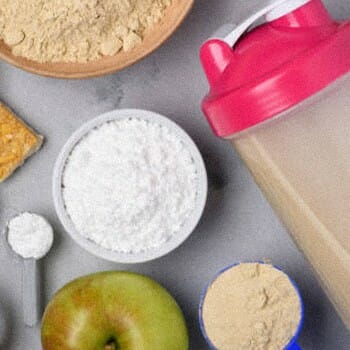
Creatine, also known as creatine monohydrate, It's an amino acid produced by your body and found in meats and fish.
Typically, your body stores 80–130 grams of creatine, half of the optimal amount. Daily activities use 2–4 grams, and intense exercise demands even more, making supplementation necessary.
Why is It So Popular?

Creatine is popular because it's crucial for muscle energy, which is processed by the kidneys and liver. Despite myths, it's favored by athletes for its proven benefits in high-intensity sports and activities requiring quick energy bursts, because it really improves performance, as confirmed by the study published on the National Library of Medicine website [1].
“There is substantial evidence to indicate that creatine supplementation during resistance training is more effective at increasing muscle strength and weightlifting performance than resistance training alone, although the response is highly variable.”
— Eric S Rawson, Jeff S Volek, Effects of Creatine Supplementation and Resistance Training on Muscle Strength & Weightlifting Performance.
Creatine Benefits

Improved exercise performance and endurance, bigger muscle mass, and more power are the main benefits of creatine monohydrate.
But let's see how it comes to that:
- Creatine boosts the workload, allowing for more work or volume in a single training session. This leads to more ATP (adenosine triphosphate), energy stored in your muscle cells. It's also an essential energy source for intense training and heavy lifting. Simply put, creatine will give you power for more reps during your workout, resulting in bigger muscles.
- Creatine monohydrate helps post-workout muscle repair and enhances the creation of new and bigger muscles.
- Using creatine raises your levels of anabolic hormones, which also results in bigger muscle mass.
- Creatine increases cell hydration, meaning when you take the supplement, the water content in your muscle cells grows, enlarging your muscles.
- Increased creatine levels reduce protein breakdown, resulting in bigger muscles.
- Creatine also lowers your myostatin levels, which allows for new muscle growth.
Creatine supplements enhance muscle strength and improve brain function, potentially preventing neurological diseases and boosting brain health [2].
Benefits for Vegan Athletes
Creatine is a key supplement for vegan athletes as it helps to overcome the limitations of a meatless diet in terms of sports performance.
Its use can be crucial for maintaining the intensity and quality of training, especially in sports that require strength and endurance. This allows athletes to adapt to rigorous training regimens better, maintaining intensity without compromising muscle health.
Does Vegan Creatine Exist?
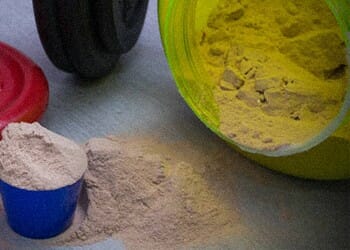
Yes, certain types of creatine are vegan.
Several brands of creatine are free from animal products and even recommended to athletes for their benefits, says Paul Shapiro, CEO of The Better Meat Co.
For vegans seeking performance enhancement, powdered creatine is usually the best choice, as it's typically vegan-friendly, unlike capsules that often contain non-vegan bovine gelatine.
See the best vegan-friendly creatine brands.
Do Vegans Need to Take It?

The world is obsessed with vegans not getting enough protein that they forget about creatine.
Yes, vegans need to take creatine.
As I mentioned, our bodies make only half of the muscle creatine we need while we get the other part from our diet: meat and fish.
Since vegans don't consume those foods, they need to get the creatine from supplements.
However, no supplement will give you more muscles and strength without putting in some effort.
Yes, supplements help, but only in a small percentage; you’re responsible for most of the work.
Quality nutrition, adequate sleep, and rigorous training are key to athletic performance, and adding creatine monohydrate can elevate these results.
However, for vegetarians or new vegans with moderate workout routines, additional creatine may not be necessary. The need for creatine supplements largely depends on your diet and fitness goals.
4 Major Advantages for Vegans

Creatine supplements are beneficial for (almost) everyone, but it provides even more advantages to vegetarians and vegans.
Besides the standard advantages of biggest muscles, more power, and strength, both vegetarians and plant-based nutrition practitioners can also experience:
1. Ergogenic effect
A couple of studies have discovered that using creatine supplementation can increase your muscle availability of creatine and PCr while improving the capacity for exercise, which I already mentioned.
Both men and women can benefit from using creatine, even though the same studies have revealed women can't gain as much strength and muscle mass as men.
However, both vegans and vegetarians can experience some other advantages of creatine, including:
- Greater training tolerance
- Possible enhancement of aerobic capacity
- Increased single and repetitive sprint performance
- Enhanced glycogen synthesis
- Increased work performed during sets of maximal effort muscle contractions
- Increased anaerobic threshold
- Increased muscle mass and strength adaptations
- Increased work capacity
2. Enhanced Recovery
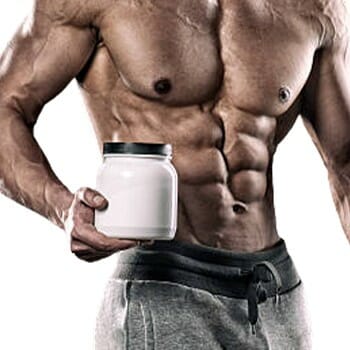
Besides providing the ergogenic effect, higher creatine levels can help your muscles recover faster from high-intensity training.
Scientists have discovered that adding creatine loading in a glycogen loading protocol before starting an intense exercise can promote greater glycogen replenishment than just glycogen loading.
This is essential for vegan and vegetarian bodybuilders and athletes whose bodies use large quantities of muscle glycogen during training or competition because glycogen restoration is a critical factor in enhancing recovery.
3. Injury Prevention
Researchers haven't found proof that using creatine increases your chances for cramps, dehydration, or injuries.
However, the available data suggests that athletes who supplement with creatine typically notice a reduction in injuries compared to athletes who don't use creatine.
Hence, creatine supplementation for vegans and vegetarians could effectively prevent different injuries without causing side effects.
4. Improved Brain Function

Even though more than 90% of your body's creatine levels are located in skeletal muscle, researchers have discovered that the creatine system in the brain has a vital role in your overall brain health.
Scientists found that higher resting creatine levels can improve short-term memory, reasoning, and intelligence and improve the brain's performance in a wide range of different cognitive tasks such as recognition memory.
These results also show that vegetarians and vegans who use creatine supplementation could experience some important cognitive benefits, such as improved cognitive performance in different occupational and athletic settings.
FAQ
Can I Take Creatine Every Day?
Yes, you can take creatine every day. A good diet for a fitness regimen should contain creatine.
How Long Does It Take for Creatine to Increase Muscle Mass?
Creatine takes about 4 or 6 weeks to take effect for muscle growth.
References:
- https://pubmed.ncbi.nlm.nih.gov/14636102/
- https://pubmed.ncbi.nlm.nih.gov/17828627/
About The Author
You May Also Like

